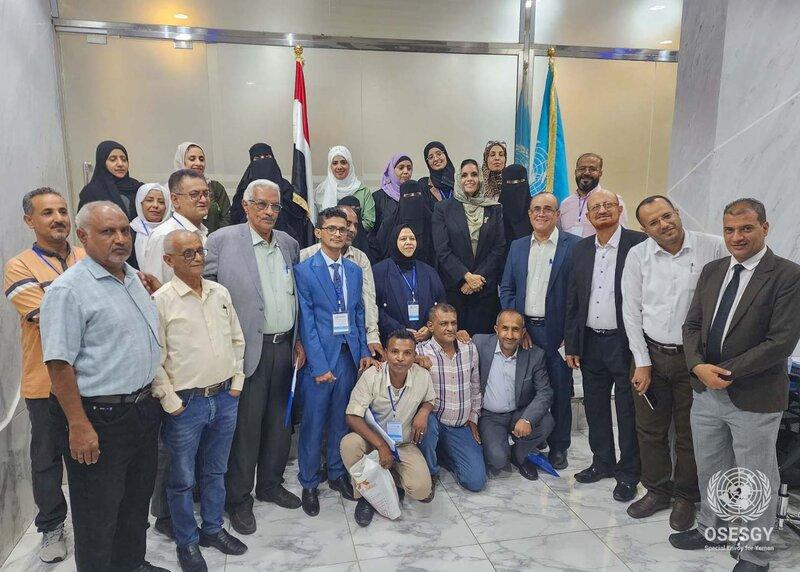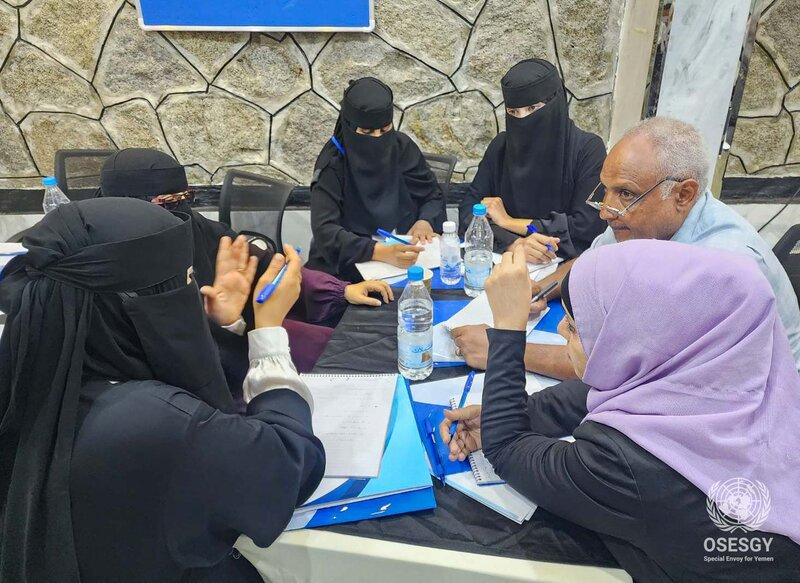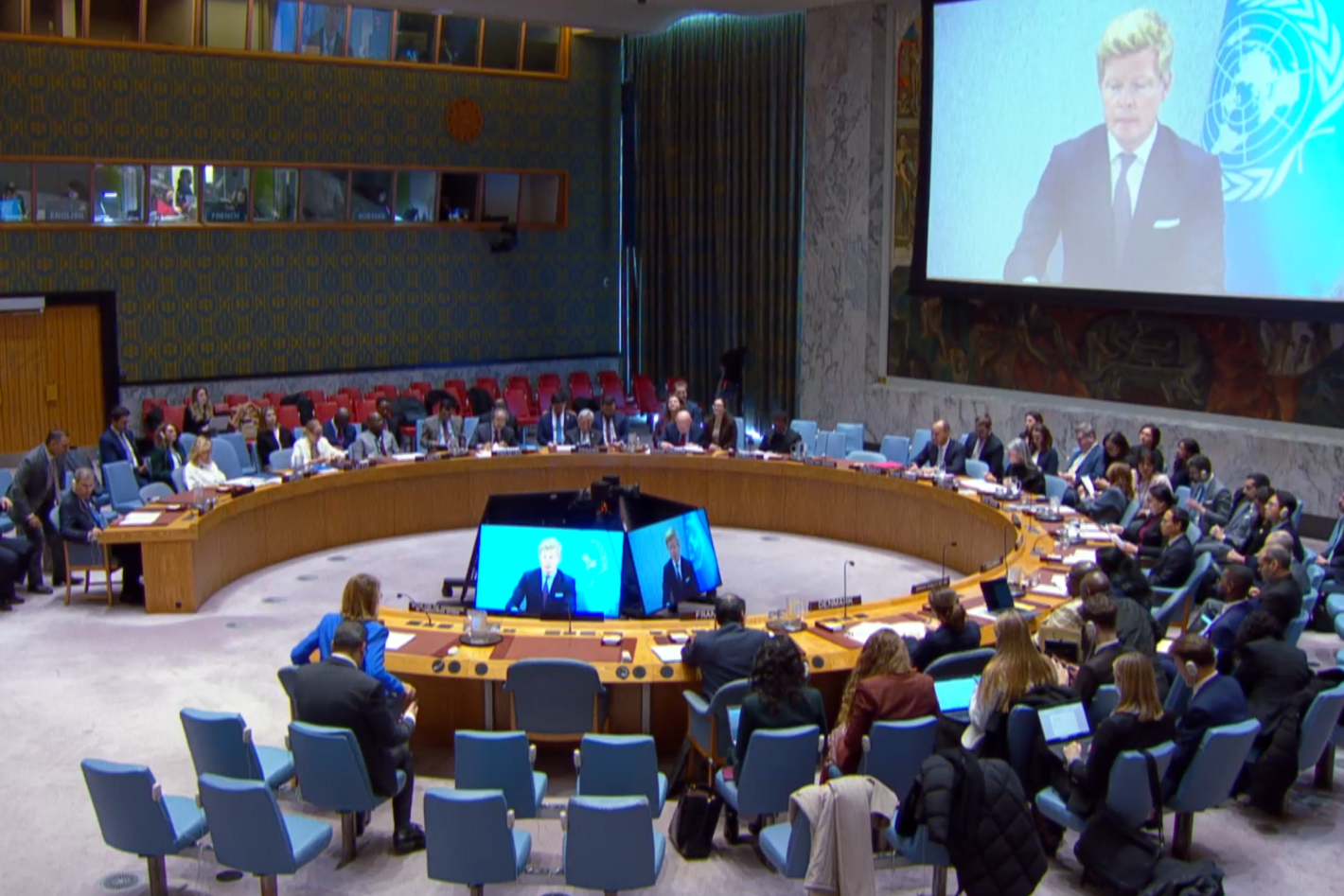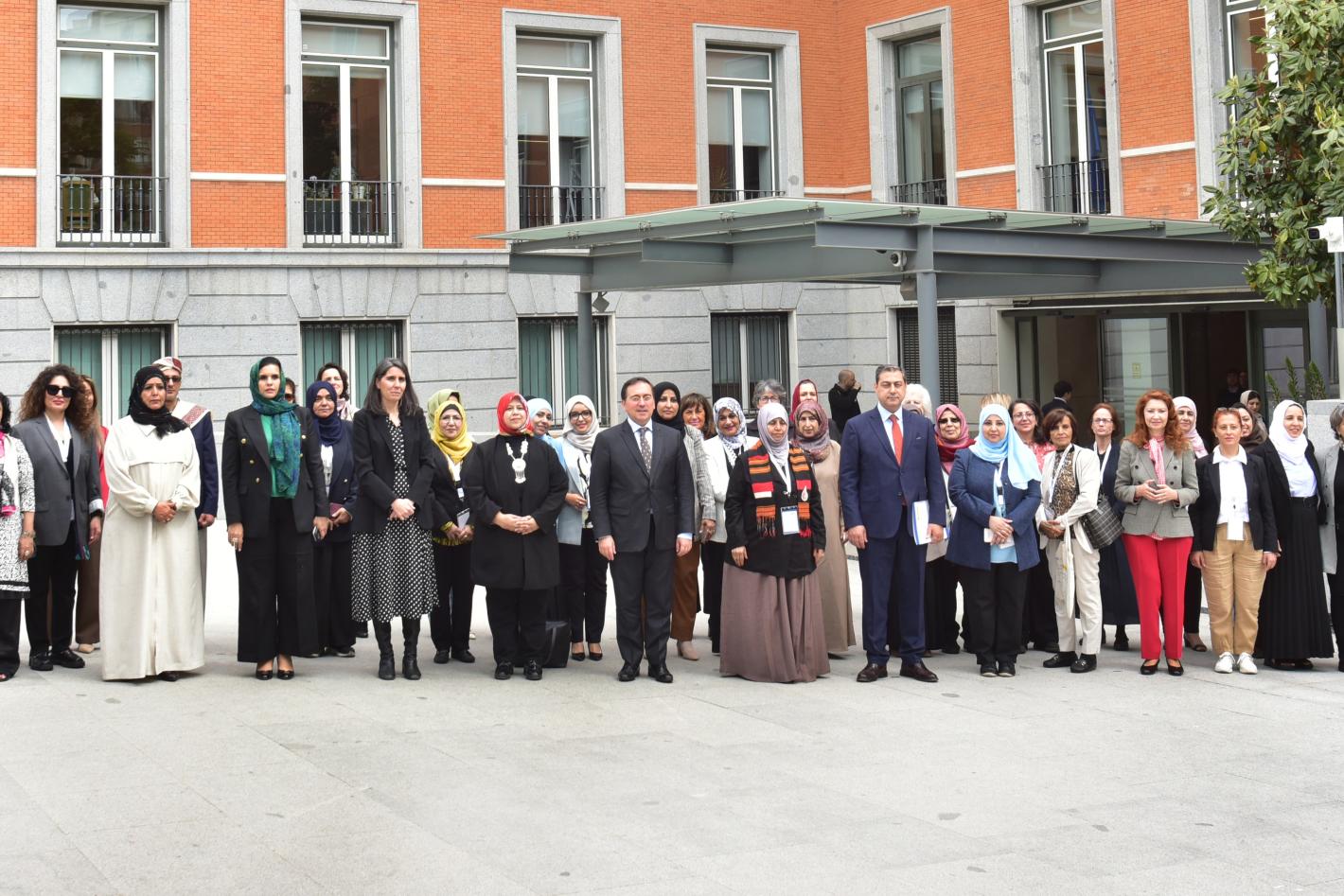As part of the global commemoration of the 25th anniversary of the Women, Peace and Security (WPS) agenda, the Office of the Special Envoy of the Secretary-General for Yemen (OSESGY) intensified its engagement with Yemeni women and diverse social actors across the country.
Through a series of discussions held in Taiz from 5 to 9 October 2025 and in Aden from 12 to 14 October 2025, the Office sought to amplify women’s perspectives on peace, justice, and inclusion, and to ensure that their voices continue to inform the peace process and broader efforts toward a sustainable political settlement in Yemen.
These engagements build on previous interactions across the political, economic and security tracks, and form part of OSESGY’s approach to foster inclusive dialogue across Yemen.
The meetings in both cities brought together a wide range of participants, including representatives of local authorities, political entities, security sector, women’s networks, local mediators, academics, journalists, economists, civil society organizations, persons with disabilities, victims of war, and grassroots movements. The discussions offered valuable insights into the intersecting political, economic, and security challenges facing Yemen, while reaffirming women’s central role in addressing them.

Taiz: Inclusion, Justice, and Urgent Priorities for Peace
Consultations focused on core elements addressing governance, justice, and socio-economic priorities. Participants emphasized the centrality of the rule of law as the foundation for social cohesion, noting that prolonged conflict has weakened judicial, military, and security institutions across many parts of Yemen, including Taiz. They underscored that accountability remains a core demand, as reflected in the assassination of Ms. Iftihan Al-Mashhari, Director of the Cleaning and Improvement Fund in Taiz, which deeply resonated with participants as a symbol of the risks faced by public servants. Participants called for justice in her case and for systemic measures to protect women human rights defenders as well as in leadership roles, both politically and administratively.
A key focus of the discussions held in Taiz was the need for tangible confidence-building measures to restore public trust and demonstrate goodwill among parties to the conflict. Participants highlighted the payment of public-sector salaries, the opening of main roads and crossings, and the release of detainees and abductees as urgent steps that could alleviate daily suffering and foster momentum toward peace. Many also called for an end to the shelling of civilian areas, the protection of public facilities, and the resumption of water pumping from Al-Howban to Taiz, citing the issue as both humanitarian and symbolic of the broader siege endured by the city.
From a governance perspective, participants stressed that peace cannot be achieved without addressing the fragmentation of security and military institutions. Several voices called for the integration of all armed groups under the Ministry of Defense, a unified salary structure for security personnel, as part of broader efforts to strengthen coordination, accountability, and de-escalation. Among the key priorities identified were combating corruption, reinforcing security, military, and judicial institutions, ensuring protection for public officials - particularly women - supporting civil initiatives, and restoring state authority. Sustainable development, social reconciliation, and the provision of essential public services - including water, electricity, education, and health - were highlighted as inherently linked to governance and justice.
Women participants placed particular emphasis on representation and protection within these structures. They noted that women remain underrepresented in decision-making positions and face growing risks when exercising public leadership. The discussions also touched on issues of transitional justice with participants stressing that sustainable peace requires ending impunity, acknowledgment of violations and redress for victims. Civil society actors advocated for mechanisms that combine restorative justice approaches with accountability measures, warning that neglecting grievances would only deepen divisions and lead to relapse to violence.

Aden: Divergent Perspectives, Shared Calls for Inclusion and Women’s Rights
Between 12 and 14 October, OSESGY held a series of meetings in Aden with diverse women’s groups and networks, including representatives from the Southern Transitional Council, the Women’s National Committee, the Feminist Summit’s Coordination Committee, academic institutions such as the University of Aden and the Women’s Studies Center, grassroots movements, civil society organizations, and women’s coalitions, lawyers’ and media networks, and economic and human rights advocates. The consultations highlighted both the diversity and the complexity of women’s participation in Yemen, revealing differences in views but also areas of convergence on core issues of representation, protection, and governance.
Participants reflected on the legacy of recent women-led movements in Aden, particularly the “Women’s Revolution”. Many described these events as a rare moment of unity that transcended political and regional divides against political and security odds while centering people’s needs and priorities and provision of essential public services, including water, electricity, education, and health.
Participants raised concern over the absence of women in government and political appointments, noting that despite formal commitments to the WPS agenda, women’s participation in decision-making has sharply declined. They called for renewed advocacy to ensure women’s inclusion in senior government roles and peace-related structures. Participants also highlighted the financial and operational challenges facing official women’s institutions, further limiting institutional capacity to implement women’s empowerment programs.
From a security and protection standpoint, women activists described an environment marked by harassment, digital defamation, as well as detentions targeting women human-rights defenders and protesters. They stressed the urgent need for training female police officers on rights-based approaches and for establishing protective mechanisms for women activists and journalists, both online and offline. The creation of locally-led, early-warning mechanism for gender-based violence and social unrest was proposed by the participants as a preventive measure to inform local authorities.
Economic issues also featured prominently. Participants underlined that women have become the primary breadwinners for many families amid prolonged salary suspensions and economic collapse. Economists and practitioners urged for the inclusion of women in economic-reform committees and reconstruction planning, noting the lack of gender-disaggregated data on women’s economic participation. They called for government and international partners to support women-led small enterprises and to ensure that women are represented in forthcoming national economic dialogue processes.

A Shared Commitment to Inclusive Peace
Across both Taiz and Aden, women participants reiterated that sustainable peace cannot be achieved without women’s meaningful participation and protection. Despite differing perspectives, there was a shared acknowledgment among women leaders of the need for a unified women’s agenda.
The discussions demonstrated that, twenty-five years after the adoption of UN Security Council Resolution 1325, Yemeni women continue to lead efforts for dialogue, accountability, and reform, often at great personal risk. Their voices underscore the resilience and leadership of Yemeni women as central to the country’s path toward peace and justice.
The Office remains committed to ensuring that women’s experiences and expertise continue to shape the design, substance, and outcomes of Yemen’s peace process, helping to build a future that is equitable, inclusive, and representative of all Yemenis.





